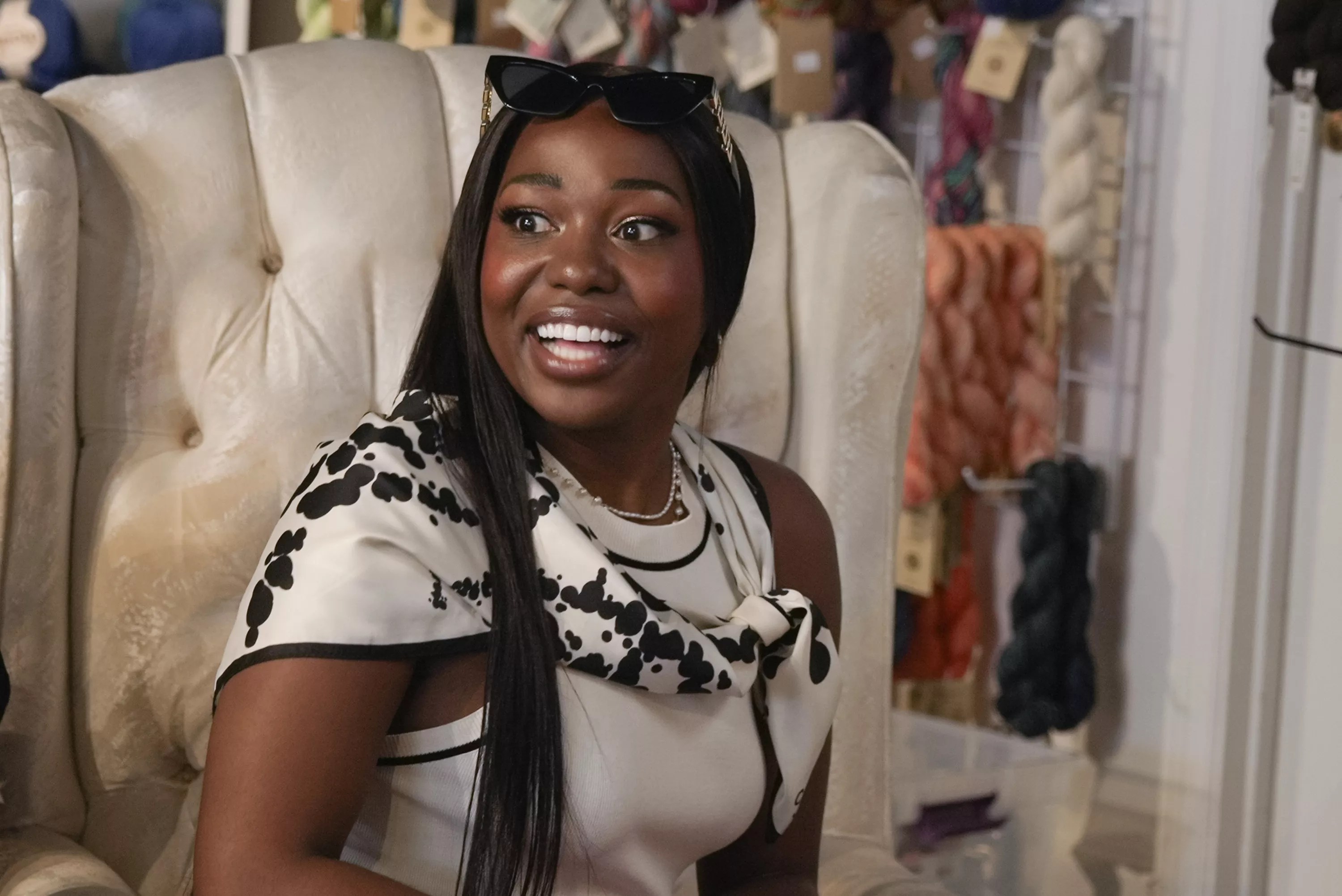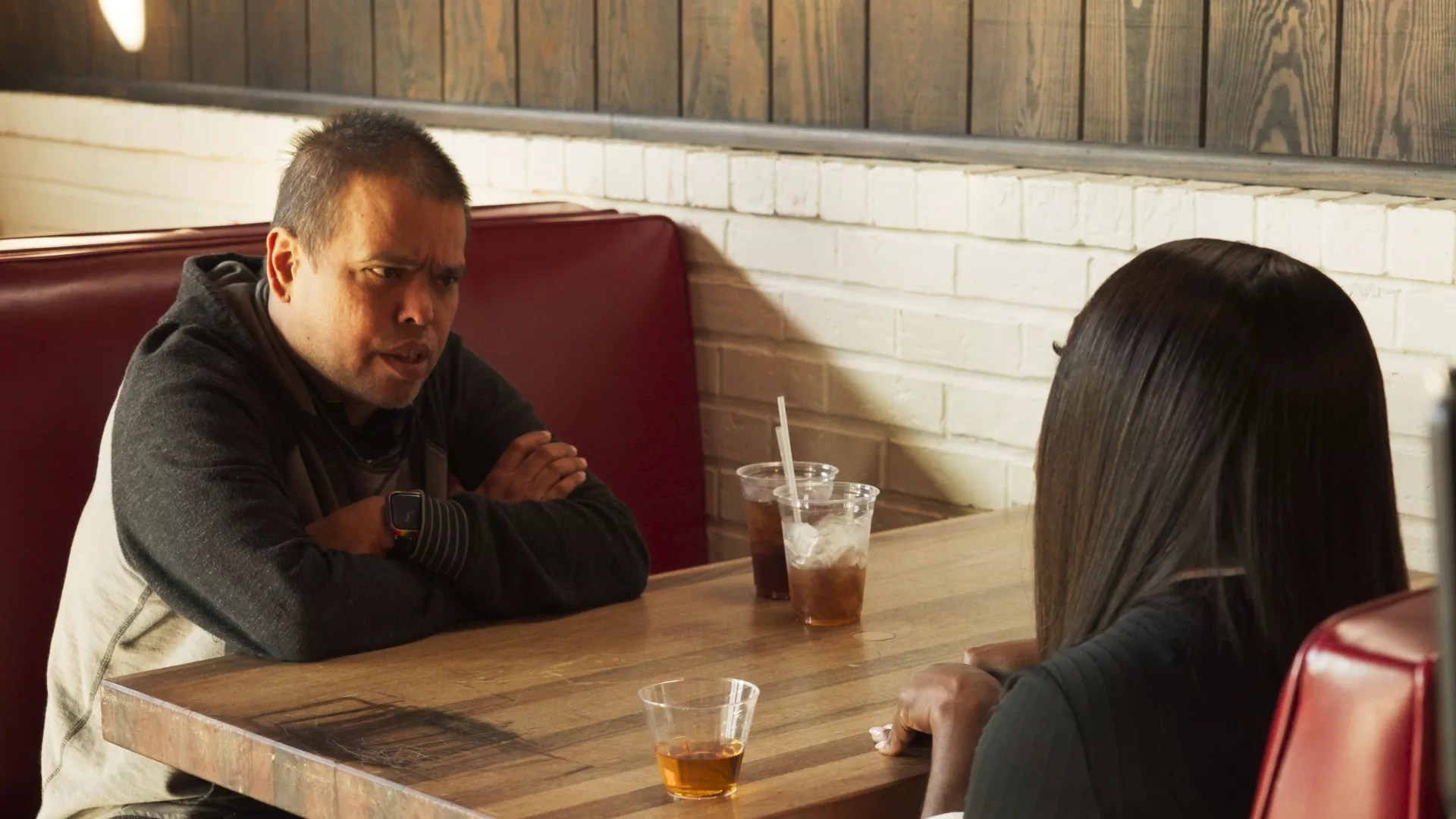
Courtesy of Disney

Audio By Carbonatix
On her new television show, Scam Goddess, actress and comedian Laci Mosley travels across the country visiting communities where people have been victims of scams. The show itself is an adaption of the Frisco native’s podcast of the same name, which launched in 2019.
In the TV adaptation, Mosley, 33, visits various small towns and large metropolises to speak with victims of famous scams, and in some cases, the scammers themselves. In the first episode she visits Dixon, Illinois – where President Ronald Reagan grew up. Dixon is also the place where former comptroller and treasurer Rita Crundwell embezzled $53.7 million from the city over 22 years to support her championship horse-breeding operation and her extravagant lifestyle.
On upcoming episodes Mosley travels to Opelika, Alabama, where Kyle Sandler, who claimed to work for Google previously, launched a start-up called Round House and defrauded investors of over $1.9 million. Then it’s on to Brooklyn, New York, where she meets victims of Lamor Whitehead, also known as the “Bling Bishop,” who scammed church parishioners into giving him money that he used to fund his designer wardrobe and jewelry collection.
Scam Goddess arrives at a harrowing time. Our conversation with Mosley took place amid the devastation of the Los Angeles wildfires. At the time, Mosley had mixed feelings about doing promo for the show. But she’s making time to chat with press, given the show’s overall message.
Will you step up to support Dallas Observer this year?
We’re aiming to raise $30,000 by December 31, so we can continue covering what matters most to you. If the Dallas Observer matters to you, please take action and contribute today, so when news happens, our reporters can be there.
“The only reason I feel like I can promote right now is because Scam Goddess, the television show, is about helping. It’s about love. It’s about teaching people things, it’s about erasing shame,” Mosley says, revealing that she’s still in touch with some of the scam victims.
Some of Mosley’s other stints in television include her playing Carly Shay’s best friend and roommate Harper on the Paramount+ reboot of iCarly and Brookie, the best friend and co-worker of Mayan Lopez on NBC’s Lopez vs Lopez. In the past, Mosley has mentioned participating in acting auditions at malls when she was a child – but those also turned out to be scams.
“I think being an actor is kind of a scam,” Mosley says. “Like, wanting to be on television. It’s so difficult, it’s so weird. You’re throwing things at the wall and you don’t know what’s gonna stick. And I always knew it was a scam, but I walked into it confidently.”
Having grown up in Texas, one of the scams she frequently heard about was the Collin Street Bakery scam, in which an employee of the bakery named Sandy Jenkins embezzled $17 million from the company from 2004 to 2013 to maintain a facade of wealth and success.
“It was the scam of someone who had low self-esteem,” Mosley says of Jenkins. “No one would let him into country clubs. He wasn’t like a cool guy, and then he started ripping off the most famous bakery in the world. Like they do fruitcakes for kings and queens, and I really think he did it because he wanted to be seen.”
As a “Black, tiny, queer woman,” Mosley says she “understand[s] creating the life you want to live,” but she doesn’t condone the harm scammers cause to their communities. In the six years since dreaming up her podcast, she’s learned what often drives scammers to do what they do and why people fall for scams.
“We’re all born with needs,” says Mosley. “No one could be born and just left out on the street and be fine, like, you need someone to help you. You need someone to help you live, and we forget that sometimes. Scammers don’t. So if you need love, if you need money, if you need success, if you need actualization, if you need a job, if you need anything, there is always going to be someone there to exploit it. So you have to be aware of that.”
Throughout Scam Goddess, we see people from all walks of life share their stories about how they were affected. The show hammers home that no one is exempt from falling for scams, but Laci has found that “highly intelligent people” are often prone to giving in.
“They have this arrogance that it won’t happen to them,” says Mosley. “They know everything. They’re smart. And then they fall easily because they simply think it won’t happen to them.”
Though Mosley, at this point, is an expert in scams, cons and swindles galore, she says that some of the scammers she’s spoken about have had her shaken. In one episode, Mosley meets Sandler, and although the on-screen conversation is brief, she says the interaction took place over two hours. Mosley says she was disturbed after meeting with Sandler.
“Sometimes you hug people or something,” says Mosley. “I couldn’t touch him. I was so terrified, and I walked out shaking. I have never met the dark triad personality, and sat down with them for over two hours. I was mortified. And the fact that I could still figure out what he was talking about and guide him through his lies, it scared something in me. Like, ‘Why am I so interested in this? Why am I so good at this? Like, why am I sitting down with a literal monster and I can fight him so easily?’ That was terrifying. I walked out and I was shaking, and my team grabbed me because I was so scared.”

Kyle Sandler (left) talks cons with Laci Mosley.
Courtesy of Disney
In the age of modern technology, scammers are getting too good. According to a 2024 report by the Federal Trade Commission, one in four people claimed to have lost money due to scams in 2023, with a median loss of $500 per person. The FTC also reported that in that same year, people lost over $10 billion to scams. Email was the top contact method from scammers, many of whom were said to have pretended to be a business or government agency.
Despite her expertise, Mosley says people still try to fool her, but she shares her tips on how to avoid being conned.
“If scammers can’t find the door, they’ll kick down the window,” Mosley says. “Don’t click on links. If you get a threatening text from someone you’ve never seen before, don’t respond at all. I’ve gotten emails and texts like, ‘Oh, we can see through your phone, and we know that you’ve been naked’ or whatever, and I don’t respond to them. And some of them are menacing. Some of them have had screenshots of my old address, and my old telephone number. It was terrifying, but I knew it was a scam. So don’t play the game.”
Mosley posits that Americans are victims of scams every day – including, but not limited to, the U.S. government.
“A bunch of old white dudes sat in a room and decided laws [while] we weren’t there,” she says. “We had no vote. We had no voice in any of it. And just because something has been made into law, it doesn’t mean that it’s right.
“Insurance and social security: It’s all a Ponzi scheme.”
But through it all, she emphasizes the importance of helping one another – a message that, especially at this time, feels more timely than ever.
“Community is what I’m invested in,” Mosley says. “Community is how we can build back better.”
New episodes of Scam Goddess air on Wednesdays on Freeform at 9 p.m. CST, and are available to stream on Hulu the following day.